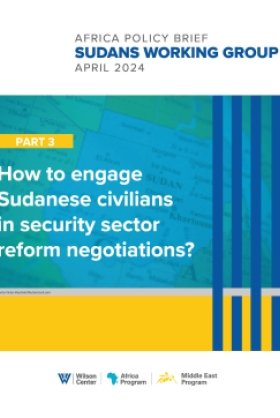Violent Extremism the White House Doesn’t Want to Talk About
The White House conference on violent extremism shouldn't "gloss over brutal attacks on minorities in the United States," says Michael Kugelman.
The stories expected to dominate the agenda at the White House summit on countering violent extremism are the headline-grabbing incidents of recent months: relentless attacks from Peshawar to Paris, from Africa to the Arab world, by the Taliban, al Qaeda, Islamic State, Boko Haram. The tactics—beheadings, bombings, burnings, and gun-and-grenade massacres—have been brutal.
Yet consider what has happened in the past few weeks in the United States: Three Muslims gunned down in North Carolina. An Arab-American man attacked in Michigan. A hijab-wearing Muslim woman harassed on a flight by passengers and crew. An Indian grandfather hospitalized after being assaulted by police in Alabama. And an Indian-American liquor store employee fatally shot in New Jersey. Motives have not been established in all of these incidents, but religion or ethnicity most likely played a role in many of them.
These stories, however, won’t get top billing at Wednesday’s summit. Some rights activists fear they may not be featured at all.
And it would be absurd for a White House conference on violent extremism to gloss over brutal attacks on minorities in the United States.
This is no small matter. The Southern Poverty Law Center says that there were 939 hate groups in the U.S. as of 2013, the latest year for which data are available, and that this figure has grown nearly 60% since 2000. Law-enforcement agencies reported nearly 7,000 offenses “motivated by bias” in 2013, according to the FBI. There were nearly 500 hate crimes against Muslims alone between 2011 and 2013, the bureau says.
By not emphasizing this form of violent extremism, and ways to counter it, the White House provides ammunition to critics who accuse the United States of pointing out problems in other countries while failing to acknowledge these same problems at home.
Such an omission may also suggest that for the White House, acts of violent extremism against religious and ethnic minorities in the U.S. are not as important as the headline-hogging incidents carried out by Islamist militants abroad.
To be sure, extremist incidents here occur less frequently than abroad and are less threatening to U.S. national security interests. But they shouldn’t be ignored—especially after White House officials previewing the summit noted this week that violent extremism “comes in many forms.”
The opinions expressed here are solely those of the author.
This article was originally published in The Wall Street Journal's Washington Wire.
About the Author


Indo-Pacific Program
The Indo-Pacific Program promotes policy debate and intellectual discussions on US interests in the Asia-Pacific as well as political, economic, security, and social issues relating to the world’s most populous and economically dynamic region. Read more

Middle East Program
The Wilson Center’s Middle East Program serves as a crucial resource for the policymaking community and beyond, providing analyses and research that helps inform US foreign policymaking, stimulates public debate, and expands knowledge about issues in the wider Middle East and North Africa (MENA) region. Read more









